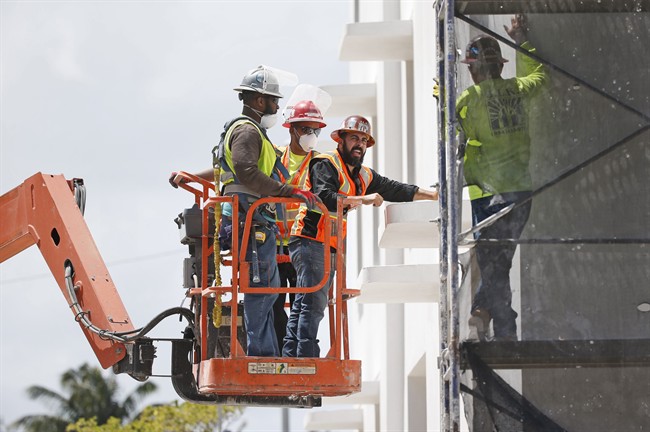By the end of 2018 all workers in Alberta will make at least $15 an hour.

This is a win for living-wage advocates, but has prompted debate on whether the move will boost or put a chill on the economy.
Economics 101 will tell you that when the cost of labour goes up, jobs will be lost. But it’s not so black and white.
READ MORE: Should North America’s minimum wage be raised to $15?
“There’s a very mixed impact on the overall economic impact of minimum wages,” said Frances Woolley, professor of Economics at Carleton University.
“There aren’t clear-cut answers,” said Woolley. “Some people gain, some people lose, the affect might not be what people expect.”
Roughly 300,000 workers in Alberta, which has a labour force of just under 2.5 million people, currently make less than $15 an hour.
The province has been having a rough few years. The oil crash hammered Alberta’s economy in particular, with unemployment rates rising as energy sector jobs disappeared. Alberta food banks have seen a huge increase in demand, while housing markets have softened — Calgary has seen month after month of declining home sales.
The Canadian Federation of Independent Business (CFIB) calls the minimum wage increase an “ill-advised climb,” and predicts it will cost the province as many as 50,000 jobs.
READ MORE: Small business group petitions against Alberta minimum wage hike
“Job losses from minimum wage increases can take the form of hiring freezes, slower employment growth, or direct job cuts during an economic downturn,” the CFIB states.
Job loss is the worst-case scenario, and minimum wage hikes can impact hiring decisions, according to Craig Alexander, senior vice-president and chief economist with the Conference Board of Canada.
“Some firms might cut back on the number of employees they are willing to hire,” said Alexander. “Money isn’t free — there are economic costs associated with making labour more expensive.”
WATCH BELOW: Fight for minimum wage
However, Alexander says, studies have shown that when the minimum wage remains around half or less of the average wage, the impact on employment is limited.
The average wage in Alberta in August was just shy of $30.
“I don’t think the introduction of a $15 minimum wage is a game changer from a labour market point of view,” said Alexander.
“While there is a negative employment affect, that affect is probably limited.”
As for the hopes it will fuel spending, the economists agree many people making minimum wage are likely to turn around and spend the extra money.
“If you give money to somebody who’s rich, they’ll probably just save it. And they won’t spend it,” said Woolley. “You give money to a low-wage worker and they’ll spend that money, that money will go right back into the economy. And I think that’s the logic behind doing this.”

Costs for businesses dealing with higher labour costs will likely in some way be passed on to the consumer, but it’s likely to be minor. Woolley uses the example of a coffee shop employee who will be making a living wage, at the expense of the coffee they’re serving creeping up in price.
“Think about what difference it makes for a cup of coffee,” said Woolley. “But it really is a difference on that [minimum-wage earner’s] life.”
READ MORE: Lethbridge pub owner considers cutting staff by 50% to combat minimum wage hike
Boosting the entry level wage can also have a ripple effect on those higher up the ladder.
“It tends to compress the wage structure,” said Woolley. “When it increases at the bottom … that puts upward pressure on other wages.”
Alberta is introducing the increases gradually, which could be a saving grace.
“Phasing it in will help,” said Alexander, as it will give businesses time to plan for the labour cost increases.
“But from a labour market aggregate point of view as a whole, I don’t think that the negative impacts are going to be very significant.”



Comments